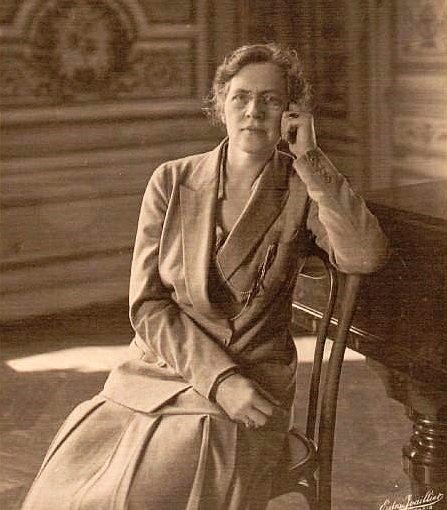Nadia Boulanger was a composer and music teacher in France – one of the best teachers ever. Among her students were Aaron Copland (Fanfare for the Common Man), Quincy Jones (producer of Michael Jackson’s best albums), Astor Piazzolla (bandoneon [accordion-type instrument] composer – I heard his music from a street band in Italy), Philip Glass (pianist and Truman Show soundtrack composer), and Joe Raposo (creator of the Sesame Street theme and Kermit the Frog’s “Being Green (It’s Not Easy)”).
George Gershwin sought her as a teacher but she declined because she said he had already found his voice. That was what she was good at and that’s why her students had such diverse styles – all she did was help them find their voice, without imposing her own on them. Astor Piazzolla came to her for classical music training and she perceived that he had another love — he reluctantly admitted that he loved tangos on the accordion. She asked him to play a tango for her. She said, “Astor, your classical pieces are well written, but the true Piazzolla is here, never leave it behind”.
She would ask prospective students: “Can you live without music? If you can live without music, thank the Lord and goodbye.” (See video where she discusses this.)
“Nothing is better than music; when it takes us out of time, it has done more for us than we have the right to hope for.” – Nadia Boulanger
She became friends with Leonard Bernstein, the great conductor of the New York Philharmonic and composer of West Side Story. Their final visit took place in Fontainebleau as she was floating between coma and sleep on her death bed. He was surprised to be recognized. “Cher Lenny,” she called him.
In Bernstein’s words:
“Then I heard myself asking: ‘Vous entendez la musique dans la tete?” (Do you hear music in your head?)
Instant reply: “Tout le temps, tout le temps.” (All the time, all the time.)
This so encouraged me that I continued, as if in quotidian conversation: “Et qu’est-ce vous entendez, ce moment-ci?” (And what do you hear right now?)
I thought of her preferred loves. “Mozart? Monteverdi? Bach, Stravinsky, Ravel?”
Long pause. “Une musique. . .” (A music. . .)
Very long pause . . . “ni commencement, ni fin” (. . . without beginning and without end).
(From Findings by Leonard Bernstein)

Leave a Reply